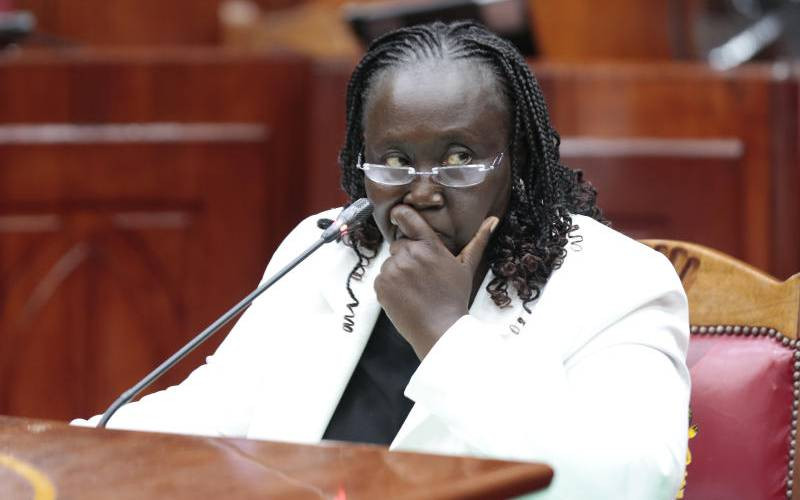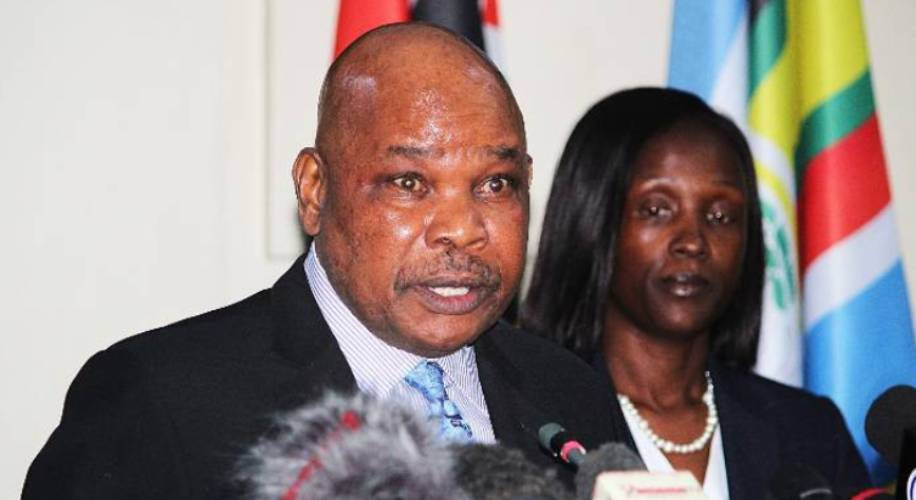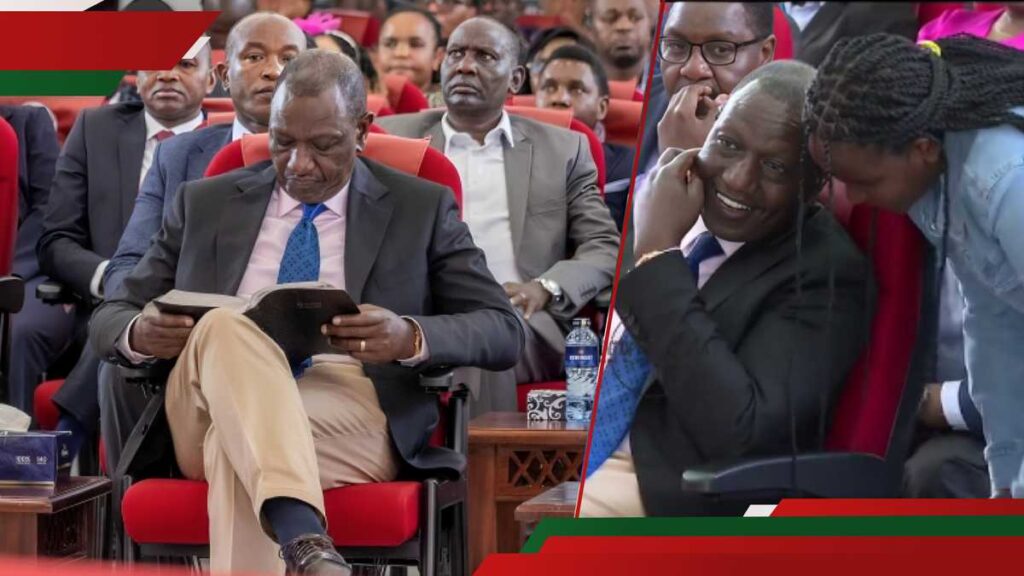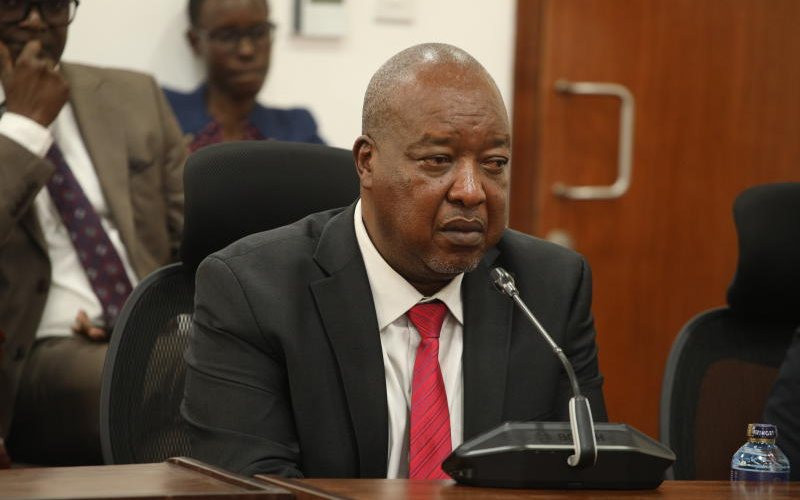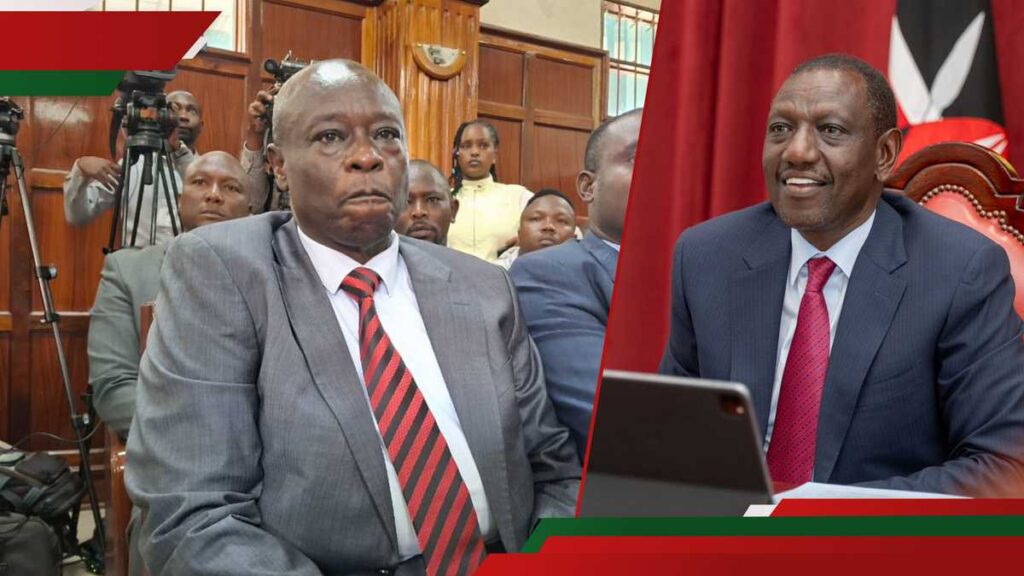In a country grappling with a rising wave of femicide, one might expect empathy or, at the very least, accountability from its leaders.
Yet, on Monday, April 14, during her vetting, Gender Cabinet Secretary nominee Hannah Cheptumo dismissed the surge in femicide as a money issue, suggesting that female university students are killed because they “could be looking for money” and lack empowerment.
Her remarks not only trivialize the brutality of the murders but also reveal a troubling detachment from the grim reality faced by Kenyan women.
Cheptumo said in her interview, “Femicide is the intentional killing of women or girls. It is brought by dependency. You find them in places that are exposed because they are trying to get an alternative source of income. If they were able to have economic power, they wouldn’t be dependent on either gender.”
The CS nominee’s remarks have since sparked criticism among netizens and rights organisations, many terming her sentiments as irresponsible and insensitive.
“Agnes Tirop, a celebrated athlete, was murdered by her partner, a man known to her. Was she killed because she lacked economic empowerment?” One user quipped.
Law Society of Kenya President Faith Odhiambo said, “That is the most irresponsible statement I have ever heard, and unfortunately, from a female. We have situations where husbands have killed their wives — what money were they looking for?”
She added, “If that is the attitude an office bearer is having and Parliament does not see the problem, and a task force has been set to analyse and propose changes — then that is the same attitude we will see at police gender desks. This kind of irresponsibility, especially at the helm of a ministry meant to protect, signals failure not just in the Executive, but in the Legislature as well.”
On social media, the backlash was the same.
X user Janet Kilel wrote, “Coming from a fellow woman, I am disheartened. Extremely disappointed.”
Another added: “This is the arrogance one gets when positions are more or less already promised. The woman didn’t even bother to look up the latest data, trends, etc.”
Human rights activist Njeri Migwi questioned, “So if they’re looking for money, they deserve to be killed? Is that the justification for femicide What about the one-year-old who was raped and killed? Or the woman who was raped and murdered on her doorstep yesterday? You are victim-blaming the dead.”
Shoba Gatimu posted: “During the end Femicide walk I found out that up to 75 per cent of murders or violence against women are carried out by people known to them, especially current or previous intimate partner. Up to 80 per cent of them happen in their homes.”
Role of a Gender CS
Under the law, the Gender Cabinet Secretary is tasked with developing gender policies, overseeing gender-related programs, and ensuring the protection of vulnerable groups.
The role also involves providing policy direction, managing the Joint Gender Secretariat, and leading efforts to prevent and address Gender-Based Violence (GBV) and domestic abuse in collaboration with stakeholders.
Stay informed. Subscribe to our newsletter
For a position that has remained vacant for months, the expectation was that the nominee would bring a clear, compassionate, and urgent solution to what has become a national crisis.
Her predecessor, Aisha Jumwa, during vetting, presented a well-researched plan to combat GBV, promising to collaborate with authorities to bring perpetrators to justice. However, little was achieved during her tenure.
But significant gaps remain. For instance, Ibrahim Rotich, the main suspect in the murder of athlete Agnes Tirop in 2021, is still at large and has failed to attend three court summons.
In the case of Rita Waeni, murdered in January 2024, no justice has been served. Two suspects arrested in connection with her killing were later released due to lack of evidence.
These are just a few of many unresolved cases.
With Cheptumo’s nomination, many hoped for a firmer, more empathetic tone—one that would reassure women that the fight against gender-based violence is far from over.
Instead, her remarks have raised concerns about her ability to protect, rather than blame, to uphold justice, rather than perpetuate narratives that normalise violence.








